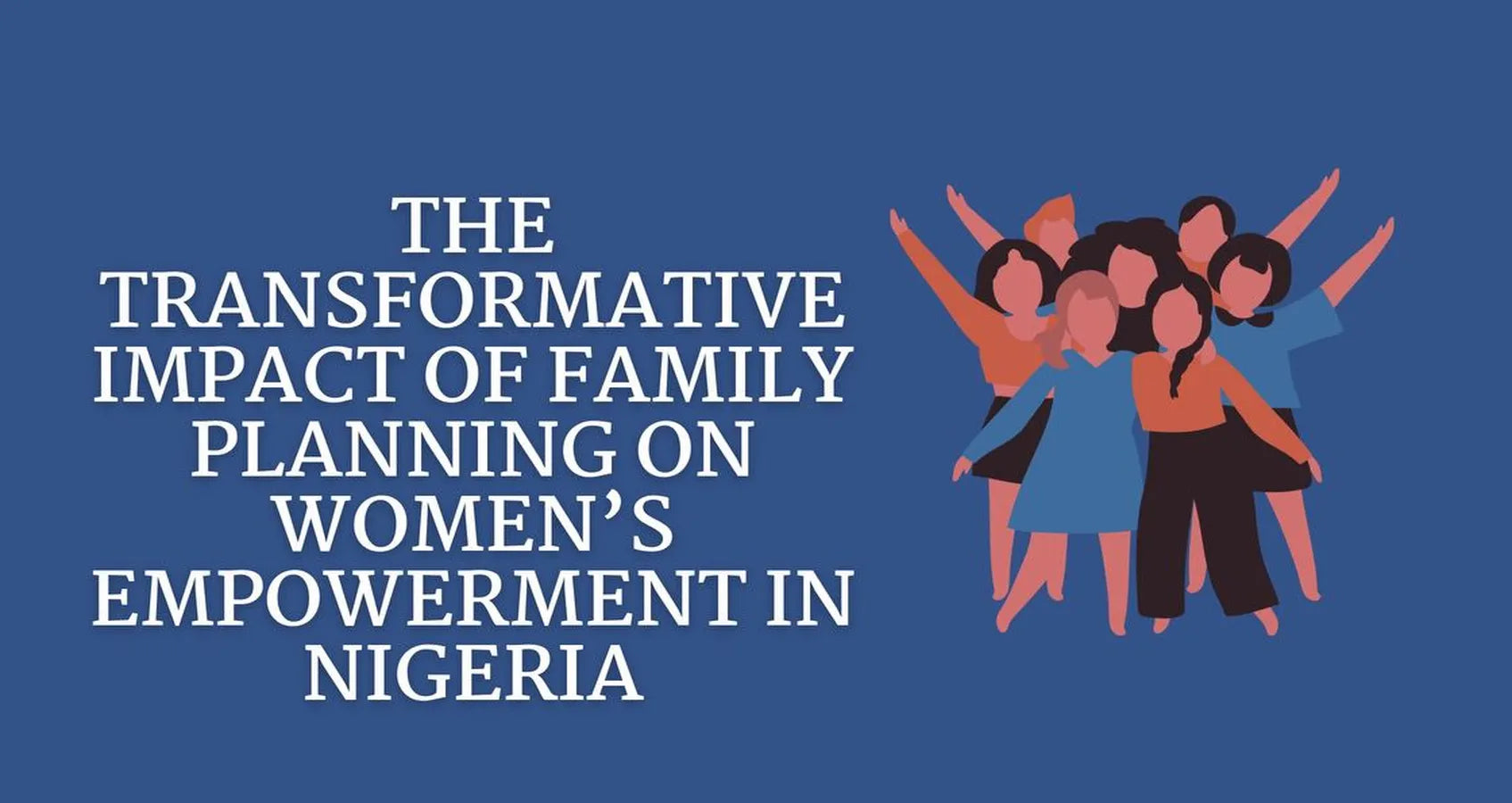In the bustling streets of Nigeria, amidst its vibrant culture and rich heritage, lies a narrative often overlooked but profoundly impactful—the role of family planning in women's empowerment. In a society where traditions intertwine with modernity, empowering women through family planning enhances their autonomy and contributes significantly to societal progress. Let's delve into the nexus between family planning and women's empowerment, exploring how this crucial aspect could shape the trajectory of Nigerian women's lives.
The Power of Choice:
At the heart of women's empowerment lies the power of choice—the ability to make informed decisions about their bodies, health, and future. Family planning equips women with this power by providing access to a range of contraceptive methods, allowing them to plan and space their pregnancies according to their aspirations and circumstances. In Nigeria, where maternal mortality rates remain a concern, empowering women with the tools to take ownership of their reproductive health is paramount to ensuring their well-being and that of their families.
Health and Well-being:
The impact of family planning on women's health cannot be overstated. Access to contraception not only reduces the risks associated with unintended pregnancies but also promotes overall health and well-being. With the ability to plan pregnancies, women can seek timely prenatal care, reduce the likelihood of high-risk pregnancies, and ensure healthier outcomes for themselves and their children. Moreover, family planning
Educational Opportunities:
Family planning is not just about preventing unintended pregnancies; it's also about opening doors to educational opportunities for women. By spacing births and planning the size of their families, women can pursue their educational goals without the interruptions that often come with frequent pregnancies and caregiving responsibilities. This empowerment through education enhances women's knowledge and skills and strengthens their economic prospects, ultimately breaking the cycle of poverty for future generations.
Economic Empowerment:
Empowering women economically is key to unlocking their full potential and driving sustainable development. Family planning is pivotal in enabling women to participate more actively in the workforce, invest in their careers, and contribute to household incomes. By having fewer children and spacing births, women can allocate their resources more efficiently, investing in education, healthcare, and entrepreneurship. This economic empowerment motivates individual women and strengthens the economic fabric of communities and Nigeria.
Conclusion:
In the journey towards societal progress, family planning emerges as a cornerstone of women's empowerment. By providing women with the tools to take ownership of their reproductive destinies, family planning not only enhances their autonomy but also fosters their educational, economic, and health empowerment. In Nigeria, where the aspirations of women intersect with the complexities of tradition and modernity, investing in family planning is not just a matter of choice but a pathway to a more equitable and prosperous future for all. As we chart our course forward, let us recognize the transformative power of family planning in shaping the lives of Nigerian women and the nation at large.
Click here to chat with a specialist.
